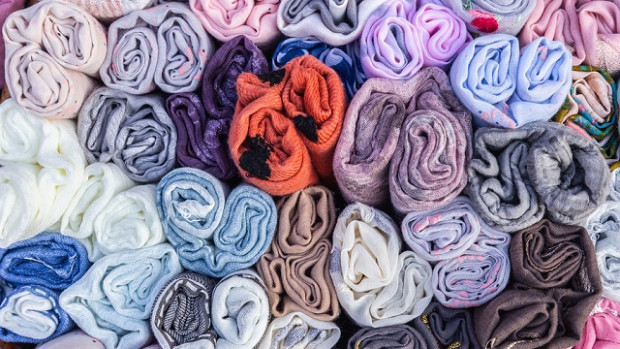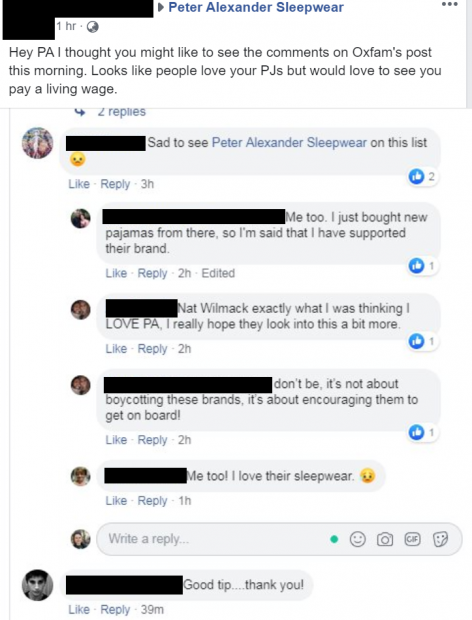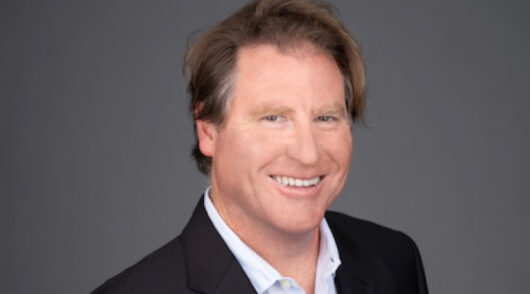
Oxfam has named and shamed a number of retailers for not paying garment workers a living wage and lagging behind their peers in making commitments to do so, and is pushing consumers to make their voices heard on the issue.
According to Oxfam, a living wage means enough money is earned in a standard week to the basic essentials – food, housing, healthcare, clothing, transport, education, as well as money for unexpected events.
Premier Investments’ Just Jeans, Peter Alexander and Jay Jay’s brands, Noni B’s Rivers, Katies and W.Lane brands, as well as department store Myer were all named on the charity organisation’s ‘Naughtiest’ list for failing on wage commitments.
Big W and Zara landed on the ‘Naughty’ list for failing to have made a credible commitment to supporting their garment workers.
“While a number of iconic Australian brands have come on board and taken the significant first step towards ensuring the payment of living wages, others are dragging their feet,” Oxfam Australia labour rights lead Sarah Rogan said.
“While the ‘nice’ brands are to be commended for leading the way , there is still a long way to go to ensuring the payment of living wages that will allow the women making our clothes to live decent lives.
“That fact is that right now, not all workers are being paid enough to afford a decent life for themselves and their families.”
Premier Investments, Noni B Group, Myer, Big W and Zara were all contacted for comment.
Noni B Group specified that it adheres to a strict ethical sourcing policy, and works with its suppliers and manufacturers to ensure they are like minded.
“We continually hold ourselves to the highest ethical standards, and we expect no less from our supply partners,” reads Noni B’s ethical sourcing conduct policy.
This policy states that the business’ code of practice seeks to ensure living wages are paid, among other benefits for workers.
A Big W spokesperson told Inside Retail the business is working collaboratively with its suppliers and global organisations to make the necessary changes, but it knows there is more work to do.
“We have already begun to see improvements as a result of the revised [responsible sourcing program] at the factory level,” the spokesperson said.
“We recognise our role as a responsible retailer and will continue to work hard to make further improvements in this space.”
In its announcement, Oxfam provided a means for its followers to contact the brands by linking to their social channels in the hopes that consumers would push the retailers into action.
Many have taken the hint, with the retailers’ Facebook pages beginning to see disappointed customers posting to demand better treatment for the workers.
“With just one month today until Christmas, shoppers should demand the big clothing brands they know and love do better by making a public, credible commitment to ensuring the payment of living wages, so the workers making their clothes can lift themselves, and their families, out of poverty,” Rogan said.
Conversely, Best & Less, Bonds, City Chic, Elk, Kmart, Target, Cotton On Group, Country Road Group, David Jones, Gorman, Dangerfield, H&M, Designworks, Review, Forever New, and Jeanswest were named on the charity’s ‘Nice’ list for making clear commitments that included a living wage, and set out a clear timeline for when this will be implemented.
According to Oxfam research released in 2017, the $23 billion fashion industry would be able to afford the cost of paying its garment workers a living wage if it raised the price of its garments by just 1 per cent.
Access exclusive analysis, locked news and reports with Inside Retail Weekly. Subscribe today and get our premium print publication delivered to your door every week.







